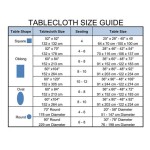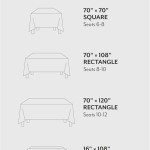What Are The Uses Of Tablets?
Tablets have become ubiquitous in modern society, occupying a space between smartphones and laptops. Their versatility allows them to serve a multitude of purposes, making them valuable tools for individuals across diverse demographics and professional fields. This article explores the various uses of tablets, highlighting their capabilities for entertainment, education, professional productivity, and specific industry applications.
Entertainment and Media Consumption
One of the most common uses for tablets is entertainment. Their larger screen size compared to smartphones provides a more immersive viewing experience for watching movies, television shows, and online videos. Streaming services like Netflix, Hulu, and YouTube are readily accessible through dedicated apps, offering a vast library of content at the user’s fingertips. The portability of tablets allows users to enjoy media on the go, whether commuting, traveling, or simply relaxing at home.
Tablets also serve as excellent e-readers. Apps like Kindle, Google Play Books, and Apple Books provide access to millions of digital books, magazines, and comics. The adjustable screen brightness and font size options enhance the reading experience, reducing eye strain and allowing for comfortable reading in various lighting conditions. Tablets can store thousands of books, eliminating the need to carry physical copies.
Gaming is another significant entertainment use of tablets. The larger screen and touch controls offer a more engaging gaming experience compared to smartphones. Many popular mobile games are optimized for tablet devices, providing enhanced graphics and more intuitive gameplay. Additionally, tablets can often handle more demanding games than smartphones due to their generally more powerful processors and larger memory capacity.
Tablets can also be used to create and consume digital art. With the use of styluses, tablets can mimic the feel of drawing on paper, making them popular among artists and designers. Apps like Procreate, Adobe Fresco, and Autodesk Sketchbook offer a wide range of tools and features for creating digital illustrations, paintings, and graphic designs. The portability of tablets allows artists to create art on the go, capturing inspiration whenever it strikes.
Education and Learning
Tablets have revolutionized the education sector, offering students and educators new tools for learning and teaching. Many schools and universities have integrated tablets into their curriculum, providing students with access to digital textbooks, educational apps, and online learning resources. The interactive nature of tablets promotes engagement and enhances learning outcomes.
Digital textbooks offer several advantages over traditional textbooks. They are often more affordable, save space, and can be easily updated with the latest information. Digital textbooks can also include interactive elements such as videos, animations, and quizzes, which enhance the learning experience and make it more engaging. The ability to search for specific terms and passages quickly is also a significant advantage.
Tablets provide access to a wide range of educational apps that cover various subjects and skill levels. These apps can help students learn new languages, improve their math skills, or explore science concepts through interactive simulations. Many educational apps are designed to be fun and engaging, making learning more enjoyable for students of all ages. Apps like Khan Academy and Duolingo are widely used for supplementing traditional education.
For educators, tablets offer tools for creating and delivering engaging lessons. Teachers can use tablets to create presentations, access online resources, and interact with students in real-time. Tablets can also be used to administer quizzes and assessments, providing immediate feedback to students. The portability of tablets allows teachers to move around the classroom and interact with students more easily.
Professional Productivity and Business Applications
Tablets have become indispensable tools for professionals in various industries, offering a balance of portability and functionality that laptops cannot always match. Their ability to run productivity apps and connect to accessories like keyboards and mice makes them suitable for tasks such as note-taking, document editing, email management, and project collaboration.
Tablets are excellent for note-taking, especially when paired with a stylus. Users can handwrite notes directly onto the screen, mimicking the feel of writing on paper. Apps like OneNote, Evernote, and Notability allow users to organize their notes, add annotations, and share them with colleagues. The ability to search handwritten notes is a particularly useful feature.
Document editing and creation are also common uses for tablets. Apps like Microsoft Word, Google Docs, and Pages allow users to create and edit documents on the go. Tablets can be connected to external keyboards and mice, transforming them into portable workstations. The ability to access files from cloud storage services like Google Drive and Dropbox ensures that documents are always accessible and up-to-date.
Tablets are also valuable tools for email management and communication. Email apps like Gmail, Outlook, and Yahoo Mail provide access to email accounts, allowing users to send and receive emails, manage their inbox, and schedule meetings. The larger screen size of tablets makes it easier to read and compose emails, while the portability allows users to stay connected while traveling or working remotely.
Furthermore, tablets facilitate project collaboration. Apps like Trello, Asana, and Slack allow teams to collaborate on projects, share files, and communicate in real-time. The ability to access project information from anywhere makes tablets ideal for remote teams or individuals who are constantly on the move. Video conferencing apps like Zoom and Microsoft Teams allow for virtual meetings and presentations.
Specific Industry Applications
Beyond general entertainment, education, and productivity, tablets are utilized in specific industries for specialized tasks. Their portability, durability, and specialized apps make them ideal for field work, healthcare, retail, and manufacturing.
In the field service industry, tablets are used for tasks such as equipment inspections, maintenance logs, and work order management. Technicians can use tablets to access schematics, manuals, and training videos on-site, reducing the need to carry bulky paper documents. Specialized apps allow technicians to track their progress, update work orders, and communicate with dispatchers in real-time. Ruggedized tablets are designed to withstand harsh environments, making them suitable for use in construction sites, oil fields, and other demanding environments.
The healthcare industry utilizes tablets for tasks such as patient monitoring, electronic health records (EHR) management, and telemedicine. Nurses and doctors can use tablets to access patient information, record vital signs, and administer medications. Tablets can also be used for telemedicine consultations, allowing patients to connect with healthcare providers remotely. The portability of tablets allows healthcare professionals to move around the hospital or clinic and access patient information at the bedside.
In the retail industry, tablets are used for point-of-sale (POS) systems, inventory management, and customer engagement. Sales associates can use tablets to process transactions, check inventory levels, and provide product information to customers. Tablets can also be used to display promotional materials and collect customer feedback. Mobile POS systems allow retailers to process transactions anywhere in the store, reducing wait times and improving the customer experience.
Tablets are also used in manufacturing for tasks such as quality control, process monitoring, and equipment maintenance. Engineers and technicians can use tablets to access schematics, manuals, and training videos on the shop floor. Tablets can also be used to collect data from sensors and machines, providing real-time insights into the manufacturing process. Ruggedized tablets are designed to withstand the harsh conditions of a manufacturing environment, such as dust, vibration, and extreme temperatures.

Top 10 Uses Of Tablet Computer What Is Pc

What Is A Tablet Computer How To Use

8 Benefits Of A Tablet Smart Advantages Myg
Change Tablet Uses Dosage Side Effects Composition Practo

Tablet Vs Laptop Pros Cons For Business Use
What Determines The Sd Of A Tablet Coolblue Anything For Smile

Free Tablets For Low Income Families School Work Life

Best Tablets To Buy In 2024 From Apple Samsung Microsoft And More The Independent
Of 200 Mg Tablet Uses Dosage Side Effects Composition Practo

Performing From A Tablet In Concert Feat Focus Mode And Setlist Tutorials
Related Posts








